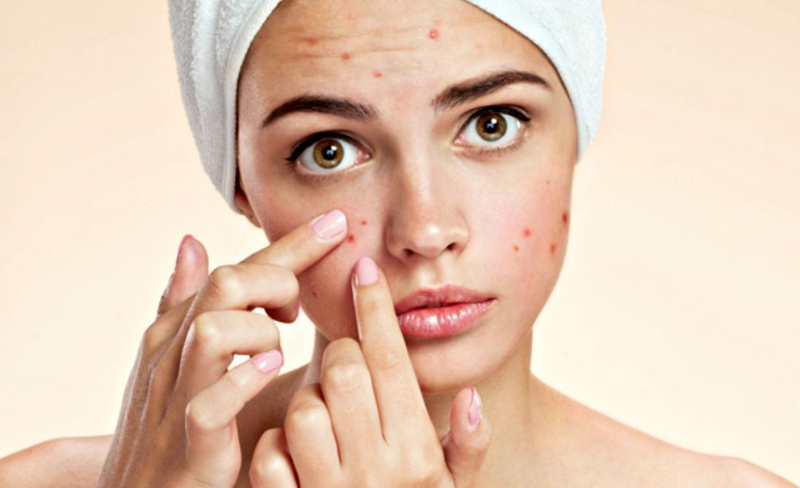Hormones are the chemical messengers of our body that directly affect our health and ability to perform in everyday activities. Nature has created the endocrine system in our body that ensures the right level of all these hormones. Even the slightest imbalance of any hormone may result in major health issues. There could be numerous symptoms of hormonal imbalance. But to get it confirmed, it is important to opt for hormone imbalance test. Read on to know more about it.

Possible Causes of Hormonal Imbalance
Both men and women can fall victim of hormonal imbalance. Following are a few factors that may cause it.
Hormonal imbalance can occur at any stage of life. Puberty, pregnancy, premenopause and menopause, all are the stages when body experiences a lot of hormonal changes.
Aging and some diseases can also cause hormone imbalance.
Abnormal secretion of any hormone may result in hormonal disruption.
An unhealthy lifestyle that involves intake of toxins.
Excessive use of contraceptive pills
Signs that You May Have Hormonal Imbalance
1. Weight Gain
Sometimes you don’t have to blame overeating or laziness for a sudden weight gain. Hormonal disruption is one of the most common underlying reasons of unintended weight gain.
2. Belly Fat
When our body experiences decrease in certain hormones and increase in others (cortisol), it tends to store some fat for future. That causes that belly fat.
3. Anxiety
Women tend to feel depressed or stressed after an imbalance of one or more hormones. For example, the pre-menstrual phase or pregnancy causes a lot of mood swings.
4. Dietary Changes
Hormonal disruption affects the way one eats or craves for food. Bloating and slow digestion too, are resulted from hormonal surge. In premenstrual phase and pregnancy women are more likely to experience dietary changes. To deal with the right way, you would have to opt for hormone imbalance test first.
5. Acne
Acne is the most common problem especially among teens. Puberty age is full of hormonal fluctuations that cause acne outbreak. But women belonging to other age groups too face this problem. It’s the imbalance of female hormone, testosterone that results in acne problem.
6. Low Libido Levels
Many women have to face low libido levels. Disturbance in the production of luteinising hormone (LH) is the main cause that a woman loses her desire to have sex. Usually, women lack this desire with aging i.e. late 40s and 50s. But this age factor may vary from person to person.
7. Sleeplessness
Progesterone is the hormone that relaxes us and we get a good night sleep. When its production decreases, we have to suffer from sleeping disorder.
8. Fatigue
It’s thyroid hormone that checks on our metabolic activities. Underproduction of thyroid hormone is what makes us dull, sluggish and exhausted all the time.
9. Memory Lapse
Forgetting things for once or twice in a day is ok. But if you constantly feel like forgetting things, this must be the indication of hormonal imbalance. Our brain communication is controlled by the hormone, cortisone. And estrogen is the hormone that controls cortisone. Lowering of estrogen level directly affects cortisone production and we suffer from memory issues.
10. Sweating and Hot Flashes
It’s another common symptom particularly in the women in their menopause and pre-menopause stage. They may have sudden sweating and feelings of heat, particularly in their upper body part. Low estrogen level causes them.
Note: Women in their menopause period are most likely to suffer = from the symptoms that are resulted from imbalance of estrogen level. Dietary changes and saliva test (for estradiol) is what they should opt for.
Some other effects include:
Too many facial and body hair
Painful and irregular periods
Hair loss
Poor concentration
Dryness in vagina
Change in breast size
Most Recommended Hormone Imbalance Tests
Saliva Testing
This is the most reliable test for hormonal imbalance and it promises to give complete overview of active hormone levels in the body. This test can detect the imbalance of various hormones including—estrogen (especially in menopausal stage), cortisol, progesterone, DHEA and testosterone. Women of any age group (particularly premenopausal and menopausal) can opt for it. This one is the most common as it identifies the imbalance of hormones on cellular level with the most accurate results.
Blood or Serum Testing
Second to saliva test comes blood testing. This test is run by drawing a blood sample out of woman’s vein. Blood testing involves the identification of hormonal fluctuations in the blood stream. Unlike saliva testing, this test does not identify the bioavailable hormones (active in tissues and organs). This test tends to cover the total hormonal levels in blood. The test often comes with inconsistent results.
FSH Testing
Known as follicle stimulating hormone testing, this test measures the level of FSH in blood. It is performed by taking a blood sample. This test is normally recommended to the women (in their pre-menopausal stage), who complain about symptoms like hot flashes and mood swings. Besides this, the women who are facing some serious issues related to infertility, menopause and ovarian cysts may also be recommended this test (some experts suggest not to take this test as an accurate measure for testing it all).
Note: This test is normally undertaken when the woman is having her period. First two days of period are most recommended for it.
DUTCH Hormone Test
It’s a comparatively new test that tends to deal with all the aspects related to sex and adrenal hormones.
Extensive Thyroid Test
This hormone imbalance test tends to cover health issues related to the functioning of thyroid.

View All Comments /Add Comment